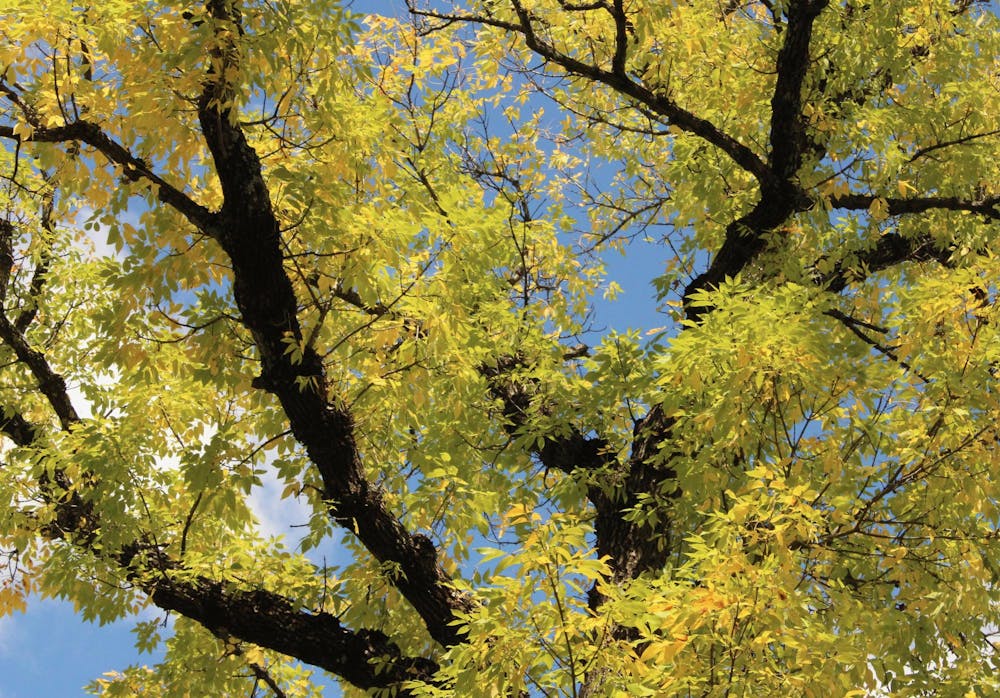It is what we do during a crisis that demonstrates the University’s true character.
Throughout former University President Jim Ryan’s term, the University was recognized for its commitment to sustainable practices. The 2030 Sustainability Plan was proposed and adopted under Ryan in 2019, which included 10 environmental goals the University will work to achieve, including becoming fossil-fuel free by 2050. During Ryan’s tenure, the Office for Sustainability made significant strides to accomplish these goals, committing $60 million to sustainability research and achieving LEED certification for 87 buildings on Grounds.
While the University has found itself preoccupied in recent months with major legal battles and filling interim gaps in major University positions, these crises must not distract from the environmental crisis that necessitates sustainability initiatives. Indeed, this is not an empty concern — a 2024-25 annual progress report, which would reassure that progress on sustainability efforts is continuing unbridled, has not yet been published. Thus, while there seems to have been some delays in maintaining the sustainability tenets of the 2030 Plan, the University must ensure the momentum of these sustainable initiatives continues under new leadership.
Before our University was encumbered in the recent administrative and legal turmoil, the University had shown peak performance in sustainability, prioritizing sustainable practices like converting heating systems, increasing energy efficiency in buildings and exploring various decarbonization opportunities. Their efforts ensured a thoughtful balance of not only helping the general ecological environment surrounding Grounds, but also mitigating environmental impacts on our surrounding community. Now, these sustainability initiatives remain in administrative limbo, with little information from the university on how these initiatives would be continued.
Yet, while these initiatives necessitate institutional support, it is imperative that leadership also look to build partnerships with existing organizations within our University. The University has no shortage of environmental groups, from Sustainability Advocates working directly with the Office of Sustainability and Zero Waste Ambassadors, to Contracted Independent Organizations like the Environment Sciences Organization and Epsilon Eta offering volunteer and social environmental events. These groups demonstrate genuine vested student interest in improving the University’s sustainability initiatives. In this way, they appear as a ready, willing and able partner to collaborate in a plethora of ways with a new administration focused on sustainability.
To achieve the 2030 Plan’s sustainability goals, University leadership should enact opportunities for the University and environmental groups around Grounds to collaborate. Highlighting coverage about events like Corner Cleanups, as well as sharing more options for general volunteer events such as assisting with composting, cleaning around Grounds and educating on environmental practices, could go a long way in demonstrating to students that opportunities exist for their impact on the environment, even if they are unable to maintain a time commitment to a specific organization.
Participation with and publicization of these organizations’ efforts would engender network effects across stakeholders, incentivizing meaningful collective action that would help to achieve many of the 2030 Plan’s goals, such as the reduction of carbon emissions and total waste. In highlighting the efforts of existing student groups, while additionally providing funding and support for their own administrative sustainability initiatives, the University can work towards a tangible difference that reflects and acts on the values of the 2030 Plan.
The reasoning for collaboration between University administration and University groups is intuitively the most effective method for ensuring the achievement of the plan’s goals — what is one student, group or community really going to do to make an impact in the grand scheme of climate change? In the same way that the University has demonstrated itself to be a leader of sustainability in the past, the University can continue to highlight sustainability efforts as a key tenet of a high-ranking university by pursuing organizations on Grounds to further their causes and providing opportunities for collaboration. Ideally, this will lead to other universities — who have not already invested or focused on sustainability — to follow suit.
Additionally, in its search for the next president of the University, the presidential search committee should highly consider placing an emphasis on finding someone who will champion the University’s sustainability initiatives by rhetorically and tangibly prioritizing various methods of achieving the 2030 Plan’s goals. Ryan has set a precedent that the institutional head has a substantial impact on the University’s sustainability priorities, and the next leader should follow suit. Let us not abandon the goals of the 2030 Sustainability Plan as a simple combination of green-thumbed hopes — let us take on the mantle of protecting our institution’s ecological impact for the near future.
Adeline Garvie is an opinion columnist who writes about health, technology and environment for The Cavalier Daily. She can be reached at opinion@cavalierdaily.com.
The opinions expressed in this column are not necessarily those of The Cavalier Daily. Columns represent the views of the authors alone.







